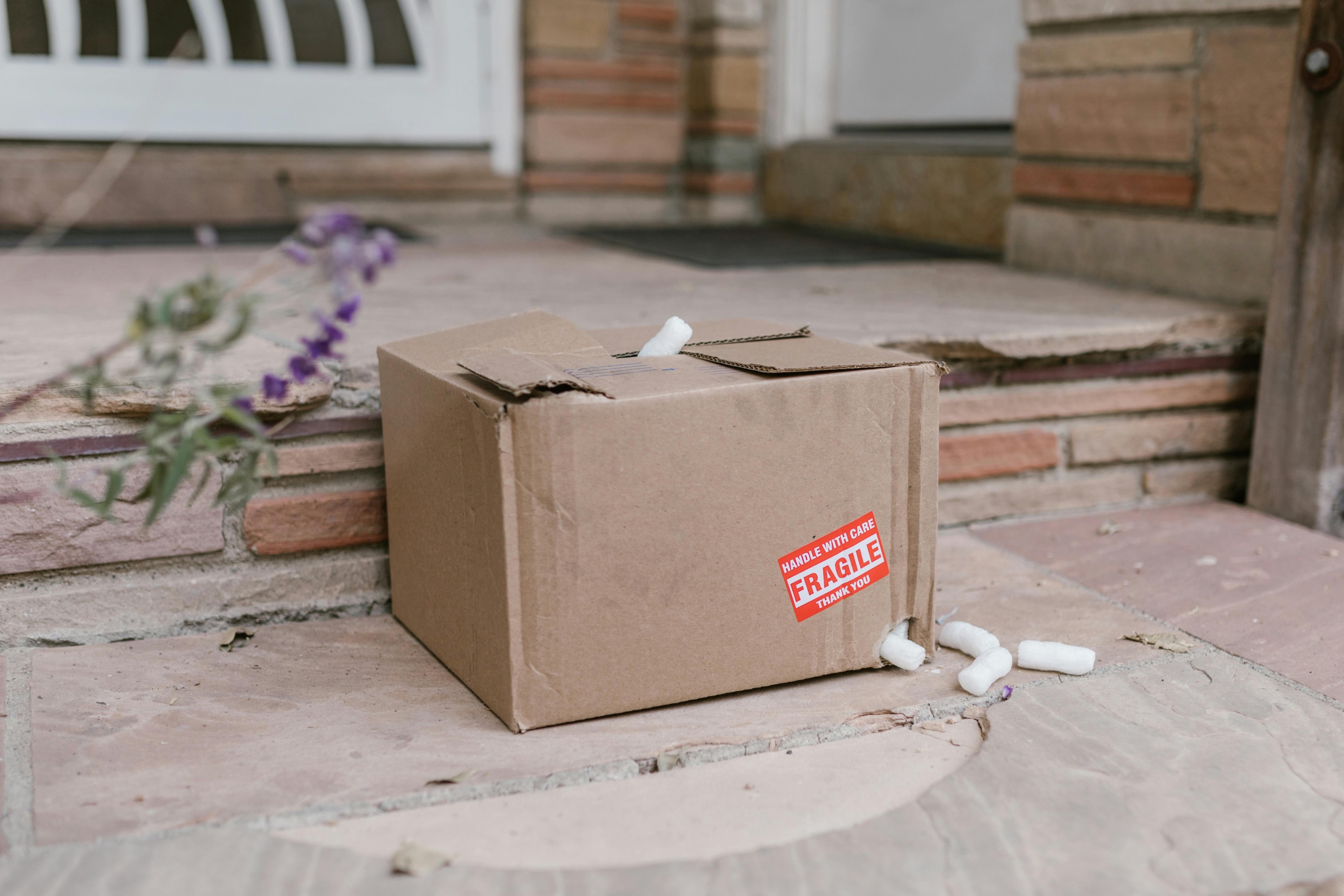Understanding Liability When a Loose Door Handle Breaks During Package Delivery
In the world of package delivery, mishaps can sometimes occur, even to the most cautious delivery personnel. Imagine a situation where, while delivering a package, you accidentally break a loose door handle in an apartment complex. An immediate question arises: who is responsible for the damage? Could you, as the delivery person, face personal liability, or does the responsibility fall elsewhere? In this comprehensive article, we will explore the legal and practical aspects surrounding such incidents, focusing on delivery workers, their employers, and the property owners' perspectives.
The Legal Framework: Respondeat Superior Doctrine
When a delivery person is working under an employer, such as an Amazon delivery partner, the doctrine of respondeat superior typically applies. This Latin term translates to "let the master answer." It establishes that an employer is responsible for the actions of their employees performed within the scope of their employment. In practical terms, if a delivery driver accidentally causes damage like breaking a door handle while performing their job duties, their employer may bear the liability rather than the employee personally.
This doctrine is a cornerstone of employer liability in many jurisdictions and is designed to ensure that injured parties can seek compensation from financially responsible entities — namely, the employers — instead of individual employees who may not have the resources to cover damages.
Assessing Negligence and Liability
Although respondeat superior places responsibility on the employer, there is a caveat. The injured party, such as the apartment complex management, could sue the delivery person directly but would need to prove negligence. Negligence, in legal terms, means that the person failed to act with reasonable care, leading directly to the damage in question.
In the context of a broken door handle, to establish negligence, the apartment complex would have to demonstrate all of the following:
- That the delivery person used unreasonable or excessive force when opening the door;
- That the delivery person’s actions directly caused the damage;
- That the damage was not due to pre-existing issues such as a worn or defective door handle.
Importantly, if the door handle was already loose or defective, and the delivery person made a reasonable effort to open the door, proving negligence becomes particularly challenging. The employer’s insurance typically handles such claims, shielding employees from personal liability when acting within their job duties properly.
Steps to Take After Causing Unintentional Damage
If you find yourself in a situation where the door handle breaks during your delivery, it is critical to respond appropriately to protect yourself legally and professionally. Here is a recommended approach:
- Immediately report the incident in writing to your employer or the delivery company you work for, such as the Amazon delivery partner.
- Avoid direct communication with the apartment complex’s management regarding the damage to prevent miscommunication or unintended admissions of fault.
- Allow your employer’s insurance to handle any claims or disputes that may arise concerning the damage.
- Document the condition of the door handle if possible — photographs or video evidence can be crucial in demonstrating the pre-existing condition.
- If necessary, seek legal advice to understand your rights and obligations fully.
The Role of Employer’s Insurance in Covering Damages
Employers typically carry liability insurance policies designed to cover damages caused by employees during the course of their work. For delivery companies, this insurance plays a vital role in absorbing costs related to property damage, vehicle accidents, or injuries, protecting both the company and its workers.
In the case of a broken door handle, once the incident is reported properly, the company’s insurance should investigate and, if appropriate, compensate the apartment complex for repairs or replacement of the damaged property. This insurance coverage underscores the importance of prompt reporting and following procedures laid down by the employer.
Liability Differences Between Independent Contractors and Employees
It is also worth noting the difference in liability when the delivery person is classified as an employee versus an independent contractor. Employees typically have the employer’s protections, including insurance coverage under respondeat superior. In contrast, independent contractors operate more autonomously and might bear greater personal liability unless specific contractual agreements or insurance policies are in place.
With many delivery platforms, there is ongoing debate and legal scrutiny over these classifications. Still, for employees working directly under a delivery partner for Amazon or similar companies, employer responsibility generally prevails.
Preventive Measures to Minimize Damages During Deliveries
While accidents can happen, delivery personnel can minimize the risk of causing property damage through the following best practices:
- Inspect door handles and entryways visually before attempting to open;
- Use gentle and steady force when opening doors;
- Report any pre-existing damage or defects noticed upon arrival to your employer;
- Avoid forcing entry or using tools unless explicitly authorized;
- Keep clear communication channels with your employer about any unusual delivery site conditions.
What to Do if the Apartment Complex Pursues Legal Action
In the rare event that the apartment complex chooses to sue the delivery person directly, several factors influence the outcome:
- Proof of negligence must be established, as discussed previously;
- Evidence of the door handle’s condition beforehand;
- Documentation of the delivery person’s adherence to employer protocols;
- Legal representation to defend against claims.
Generally, these lawsuits do not succeed without strong evidence, given the protections employees enjoy under respondeat superior and the nature of such accidental damage.
Seeking Proper Legal Assistance
If you find yourself facing questions or legal concerns following such an incident, obtaining professional legal help is crucial. Reach out through official company communication channels or send private messages to trusted legal consultants or companies specializing in delivery personnel rights. Legal advisors can help clarify liability issues, advise on insurance claims, and safeguard your interests effectively.
Summary of Key Takeaways
- Employees typically are not personally liable for accidental damage caused during work if acting within their job scope;
- Employers, through respondeat superior doctrine, usually bear responsibility and insurance coverage;
- Negligence must be proven to hold a delivery person personally liable;
- Prompt reporting, documentation, and avoiding direct conflict with property management are essential;
- Legal counsel is advisable when faced with claims or lawsuits.
Additional Considerations for 2025 and Beyond
As the delivery industry continues to evolve rapidly, especially with advances in technology and changing labor laws, workers and employers must stay informed. The year 2025 may bring new regulations affecting liability, insurance requirements, and worker classifications. Staying proactive and understanding your rights will be ever more important for delivery personnel operating in these dynamic environments.
About Legal Marketplace CONSULTANT
Legal Marketplace CONSULTANT is a leading legal service provider dedicated to supporting businesses and individuals in navigating complex legal landscapes. Our team of specialized lawyers, legal consultants, and advisors is committed to offering comprehensive legal assistance tailored to the needs of the modern workforce, including delivery personnel and logistics operators.
Legal Marketplace CONSULTANT offers expert legal consultations, advocacy, and support for delivery workers facing liability matters, insurance disputes, and employment law issues.
We provide tailored advice on respondeat superior, insurance claims, and legal protections relevant to courier and logistics sectors.
Accidental damage to property, such as a broken door handle during a package delivery, generally does not lead to personal liability for delivery workers when acting within the scope of employment. The respondeat superior doctrine assigns responsibility to employers, who typically have insurance to cover such damages.
Proving negligence against a delivery person is difficult, especially when pre-existing wear contributes to the damage. Delivery personnel should promptly report incidents, avoid direct disputes with property management, and allow their employer’s insurance to address any claims.
If faced with legal action or uncertainty, seeking knowledgeable legal advice is critical to protecting rights and understanding obligations. With ongoing changes expected in 2025 and beyond, staying informed and prepared remains essential for delivery workers and employers alike.































